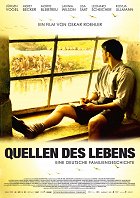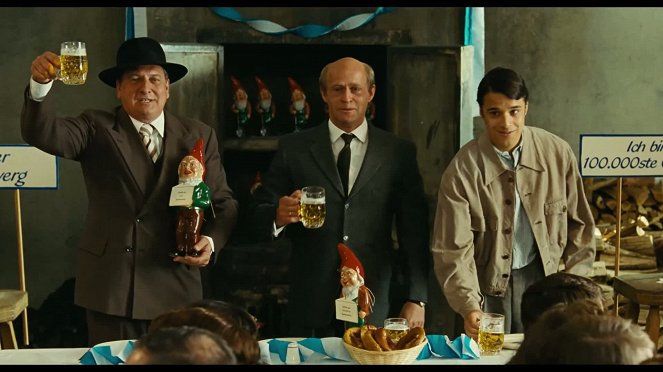Réalisation:
Oskar RoehlerScénario:
Oskar RoehlerMusique:
Martin TodsharowActeurs·trices:
Moritz Bleibtreu, Jürgen Vogel, Erika Marozsán, Kostja Ullmann, Lavinia Wilson, Sonja Kirchberger, Lisa Smit, Meret Becker (plus)Résumés(1)
Germany, the late 1940s. Erich Freytag returns from captivity in Russia to a lukewarm reception from his family. Life goes on: after Erich’s son Klaus discovers he has a knack for writing, he starts his own family with the rich, talented Gisela. They have a son but many doubt their love for the child. Years go by, with Robert shuffled back and forth between an indifferent father, and his grandparents’ homes. As the boy grows up, he tries to find out who he really is. Oskar Roehler, considered one of the bad boys of German film, here revisits the theme of his roots – which he has dealt with before – first in his novel Origin (Herkunft, 2011) and now in its film adaptation. From the atmosphere of postwar Germany and the economic miracle – which included everything from garden gnomes and intellectual revolt to punk and West Berlin – to the beginning of the 1980s, the author employs characteristic volatility in presenting three generations of his family set against the backdrop of his country’s history. In the occasionally halting flow of his narrative, with its bitterly critical tone, a romantic sensitivity shines through that sometimes borders on a justifiable sentimentality. (Karlovy Vary International Film Festival)
(plus)Critiques (1)
I was quite discouraged by the length of this film, but in the end I was more than pleasantly surprised by Sources of Life, which sometimes strangely and sometimes completely naturally tells the story of one family, presenting it to us in three generations. So we’ll get to see the grandpa, dad and son, with everything starting up after the end of the Second World War. Thanks to that, I really liked the fact that the film was not afraid to present the mood of that time in the form of not very pleasant characters who, even when the war was over, failed to understand that Hitler was a monster. There were some weaker moments, true, but I can easily forgive that. The movie still commanded my attention for three hours with its exhaustive story in such a way that I don’t think I’ll ever forget it. It’s a testament of the period told in the form of a story of one ordinarily extraordinary family.
()

